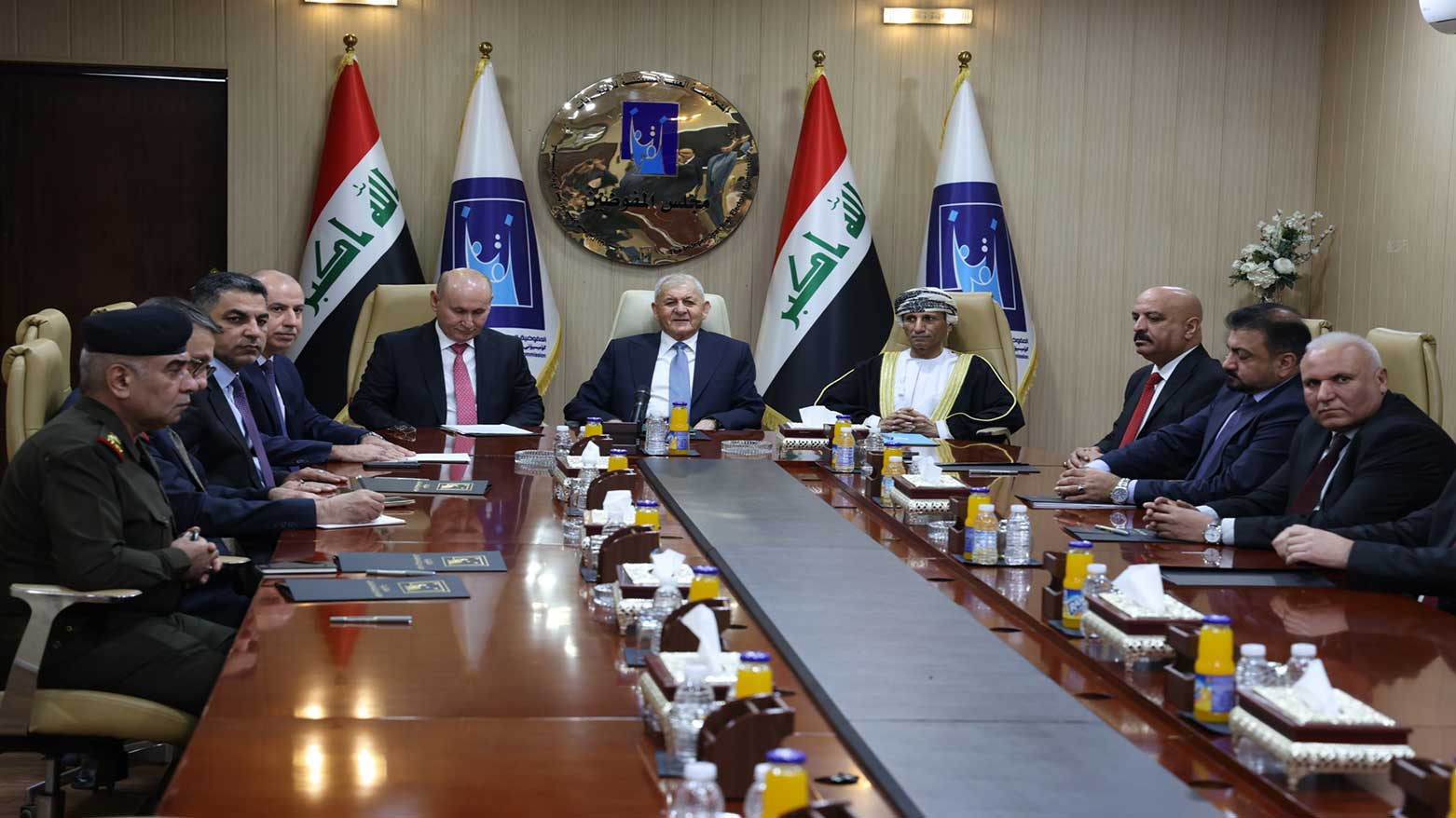UNAMI Urges Iraqis: 'Make Your Electoral Votes Precious, Meaningful, and of Value'
UNAMI’s message carried broader undertones of reform and renewal, emphasizing that Iraq “deserves leaders who can translate the legitimate aspirations of the Iraqi people into tangible reality, away from sectarianism, favoritism, factionalism, and false slogans.”

ERBIL (Kurdistan24) — The United Nations Assistance Mission for Iraq (UNAMI) on Saturday expressed full confidence in the country’s Independent High Electoral Commission (IHEC) as Iraq entered a nationwide electoral silence ahead of next week’s parliamentary elections — the sixth since the 2003 fall of Saddam Hussein’s regime.
In a statement following a joint visit with Iraqi President Abdul Latif Rashid to the IHEC headquarters, Mohamed al-Hassan, the UN Special Representative and Head of UNAMI, reaffirmed support for the Commission’s work and urged both officials and voters to uphold the highest standards of integrity, independence, and responsibility during the electoral process.
“We renewed our confidence in the work of the Commission and its members, and called upon them to observe the highest degrees of integrity and independence to safeguard the security, interests, and future of Iraq,” the statement read.
It also appealed to Iraqi citizens to participate widely and “make good choices of candidates — those capable of serving Iraq.”
Statement by the Special Representative of the United Nations Secretary-General and Head of the United Nations Assistance Mission for Iraq (UNAMI)
— UNAMI (@UNIraq) November 8, 2025
Today, Saturday, 8 November 2025, we conducted a visit to the headquarters of the Independent High Electoral Commission, together… pic.twitter.com/gPNrGqZcBL
The IHEC announced that Iraq officially entered its electoral silence at 7:00 a.m. on Saturday, marking the end of a five-week campaign season that began on October 3. Under the law, all campaigning, advertising, and political promotions are now prohibited until voting concludes.
According to the Commission, the electoral silence aims to ensure a “calm and neutral environment” that allows voters to reflect and decide freely, without political pressure or last-minute propaganda.
During this period, media outlets are permitted only to provide neutral educational coverage about voting procedures and encourage turnout.
Special voting will begin on Sunday, November 9, allowing members of the armed forces, police, and internally displaced persons (IDPs) to cast their ballots before the general vote on Tuesday, November 11.
IHEC data shows that 1.31 million registered security and military personnel will vote at 4,501 polling stations across 809 polling centers, while 26,538 IDPs are eligible to vote in 27 centers nationwide.
The Commission confirmed that all logistical, monitoring, and security measures are in place to ensure transparency and credibility.
For this election cycle, IHEC has approved 7,768 candidates — including 2,248 women — representing 38 political parties, 31 alliances, and 75 independent lists, all competing for 329 parliamentary seats.
Roughly 30 million Iraqis are eligible to vote from a population of 46 million, though nearly seven million have not renewed their voter cards and will be unable to participate.
The election is widely seen as a pivotal test of Iraq’s democratic resilience amid economic strain, public frustration with corruption, and enduring tensions between political blocs — including those backed by Iran-aligned militias and reformist movements seeking to curb external influence.
UNAMI’s message carried broader undertones of reform and renewal, emphasizing that Iraq “deserves leaders who can translate the legitimate aspirations of the Iraqi people into tangible reality, away from sectarianism, favoritism, factionalism, and false slogans.”
The statement comes as Iraq continues to navigate complex challenges — from widespread unemployment and service shortages to ongoing militia influence and the struggle to assert government authority in regions where armed groups maintain de facto control.
With the United States and international partners closely monitoring developments, the upcoming elections are viewed as an important benchmark for Iraq’s political maturity and institutional independence.
As the UN’s top envoy concluded in his appeal, “Make your electoral votes precious, meaningful, and of value.”
For many Iraqis, that message captures the stakes of a moment that could define whether Iraq’s democracy moves toward greater accountability and unity — or remains mired in the cycle of division and uncertainty that has dominated its post-2003 politics.